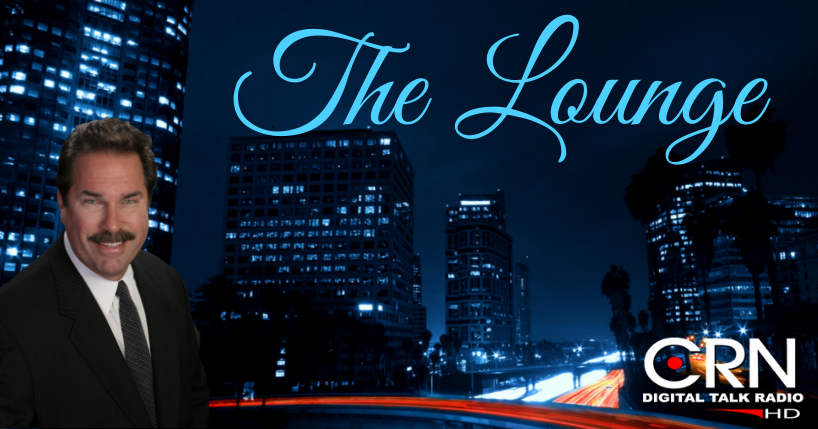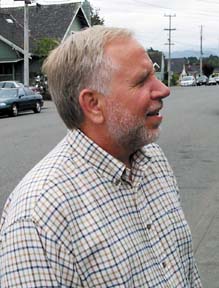 Blake was born Michael James Vincenzo Gubitosi in Nutley, New Jersey, to Giacomo (James) Gubitosi (1906–1956) and Elizabeth Cafone (b. 1910). His brother was James Gubitosi (1930–1995) and his sister was Giovanna Gubitosi (1932–1985).
Blake was born Michael James Vincenzo Gubitosi in Nutley, New Jersey, to Giacomo (James) Gubitosi (1906–1956) and Elizabeth Cafone (b. 1910). His brother was James Gubitosi (1930–1995) and his sister was Giovanna Gubitosi (1932–1985).His father was born in Italy, arriving in the United States in 1907, and his mother was an Italian-American born in New Jersey. They married in 1929. In 1930, James worked as a die setter for a can manufacturer. Eventually, James and Elizabeth began a song-and-dance act. In 1936, the three children began performing, billed as "The Three Little Hillbillies." They moved to Los Angeles, California, in 1938, where the children began working as movie extras.
[edit] Child actor
Robert Blake in 1944
Then known as Mickey Gubitosi, Blake began his acting career when he appeared as Toto in the MGM movie Bridal Suite (1939) starring Annabella and Robert Young. Gubitosi then began appearing in MGM's Our Gang short subjects under his real name, replacing Eugene "Porky" Lee. He appeared in 40 of the shorts between 1939 and 1944, eventually becoming the series' final lead character. James and Jovanni Gubitosi also made appearances in the series as extras.
During his early Our Gang period, Gubitosi's character, Mickey, was often called upon to cry, and the young actor has been criticized for being unsubtle and unconvincing. He was also criticized for being obnoxious and whiny.[1] In 1942, he acquired the stage name Bobby Blake and his character in the series was renamed "Mickey Blake." In 1944, MGM discontinued Our Gang, releasing the final short in the series Dancing Romeo on April 29.
To date, Gubitosi is one of the few living Our Gang actors from the original series. Other notable surviving members are Dickie Moore, Jean Darling, Sidney Kibrick, Jerry Tucker, and Jackie Lynn Taylor.
Blake as Little Beaver.
In 1944, Blake began playing an Indian boy, "Little Beaver," in the Red Ryder Western series at Republic Pictures, appearing in twenty-three of the movies until 1947. He also had roles in one of Laurel and Hardy's later films The Big Noise (1944), and the Warner Bros. movies Humoresque (1946), playing John Garfield's character as a child, and The Treasure of the Sierra Madre (1948), playing the Mexican boy who sells Humphrey Bogart a winning lottery ticket and getting a glass of water thrown in his face in the process.
According to Blake, he had an unhappy childhood with a miserable home life and was abused by his alcoholic father. When he entered public school at age ten, he could not understand why the other children were hostile to him. He had fights, which led to his expulsion. When he was fourteen, he ran away from home. The next few years were a reportedly difficult period in his life.
In 1950, Blake joined the Army. After returning to Southern California, he entered Jeff Corey's acting class and began working on improving both his personal and professional lives. He eventually became a seasoned Hollywood actor, playing notable dramatic roles in movies and on television. In 1956, he was billed as Robert Blake for the first time.
In 1959, he turned down the role of Little Joe Cartwright, a character ultimately portrayed by Michael Landon, in NBC's western television series Bonanza. Blake did appear that year as Tobe Hackett in the episode "Trade Me Deadly" of the syndicated western series 26 Men, which dramatized true stories of the Arizona Rangers. Blake also appeared twice as "Alfredo" in the syndicated western The Cisco Kid and starred in "The White Hat" episode of Men of Annapolis, another syndicated series. Blake appeared in various roles in the series Have Gun Will Travel and also guest starred on John Payne's NBC western The Restless Gun.
Blake performed in numerous motion pictures as an adult, including the starring role in The Purple Gang (1960), a gangster movie, and featured roles in Pork Chop Hill in 1959 and Town Without Pity in 1961 as well as Ensign Pulver (1964), The Greatest Story Ever Told (1965) and other films. In 1967, he played real-life murderer Perry Smith in In Cold Blood; Richard Brooks directed, adapting Truman Capote's non-fiction book for the film.
As Baretta with Fred.
Blake played an Indian fugitive in Tell Them Willie Boy Is Here (1969), a TV movie adaptation of Of Mice and Men (1981), and a motorcycle highway patrolman in Electra Glide in Blue (1973). He played a small-town stock car driver with ambitions to join the NASCAR circuit in Corky, which MGM produced in 1972. The film featured real NASCAR drivers, including Richard Petty and Cale Yarborough.
Blake may be best known for his Emmy Award-winning role of Tony Baretta in the popular television series Baretta (1975 to 1978), playing an undercover police detective who specialized in disguises. The show's trademarks included Baretta's pet cockatoo "Fred," his signature phrases — notably "That's the name of that tune" and "You can take that to the bank" — and a memorable theme song, "Keep Your Eye on the Sparrow," written by Dave Grusin and Morgan Ames and performed by Sammy Davis, Jr.
He continued to act through the 1980s and 1990s, mostly in television, in such roles as Jimmy Hoffa in the miniseries Blood Feud (1983) and as John List in the murder drama Judgment Day: The John List Story (1993), which earned him a third Emmy nomination. He also had character parts in the theatrical movies Money Train (1995) and Lost Highway (1997). In addition, Blake starred in the television series Hell Town, playing a priest working in a tough neighborhood.




